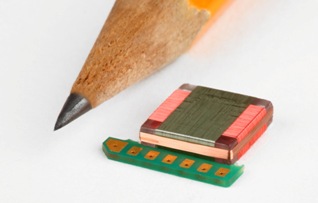A sensor is a modern device that helps us in the detection of physical conditions. This device is true evidence of technological development. A sensor can generate an electrical, mechanical, optical, or chemical signal for the detection of the physical condition in a certain area of our bodies. This device consists of a transducer which converts one form of energy to another form. Sensors have enormous applications in different fields as this device is a critical component of various measuring systems.
What Is a Biomedical Sensor?
A sensor is an intelligent and very small device that assists us to measure a long list of physical variables, including velocity, pressure, gas, flow rate, temperature, electric fields, humidity, light, etc. This is why sensors are essential to produce a variety of medical devices, such as spirometers, respiration pulse oximeters, digital thermometers, location sensors based on magnetic fields, and digital blood pressure meters.
Classification of Sensors:
There are various types of biomedical sensors. However, we can classify sensors into four groups depending on four parameters, such as functions, placements, applications, and types. Based on functions, we will find different types of sensors, such as bio, thermal, electrochemical, semiconductor, mechanical, optical, magnetic, etc. If we consider sensor placement, there are different types of sensors, such as implantable sensors, strip sensors, wearable sensors, ingestible sensors, invasive and noninvasive sensors, etc. Based on the application area, sensors can be classified as diagnostics, wellness, medical therapeutics, monitoring, imaging, and fitness sensors. Considering the type of biomedical sensors, we will find a variety of sensors, including blood glucose sensors, image sensors, blood oxygen sensors, ECG sensors, temperature sensors, motion sensors, inertial sensors, and pressure sensors.
Things to Learn About Biomedical Sensors:
Biomedical sensors have significant use in biotechnology and medicine for the detection of chemical, biological, and physical processes. To detect these processes, this device transmits and reports the regulated data. Biomedical sensors are an important part of many medical systems that process clinical samples. In recent times, the application of biomedical sensors is expanding rapidly for the measurement of core body temperature, cerebrospinal fluid pressure, blood pressure, muscle displacement, blood flow, and bone growth velocity.
Due to the adaption of home health care services, the use of medical instruments that include biomedical sensors is rising. A sensor includes a miniaturized micro-coil. The production of these tiny coils is a tough job for the manufacturers and it requires various technologies. Mass production is also important to manufacturing these coils in a large amount by maintaining high standards.
Challenges:
Because of the environmental constraints and tiny physical size of the micro-coils, manufacturers face several manufacturing challenges. It has been found that an ultra-fine wire with a diameter of 59 AWG or 9 microns is suitable for the winding of micro-coils. However, because of the smaller dimensions of these wires, manufacturers require specialized and personalized equipment to handle the wires. Manufacturers also need to focus on the standard of coils so that the final product meets the strict tolerance limits.
Micro-machining technologies can help to bind a coil with over 1000 windings, maintaining a very tiny size. While traditional welding and soldering methods are ineffective to join two ultra-fine wires during the manufacturing process, thermal-compression bonding technology has emerged to solve this problem. This technology not only helps to build reliable and efficient joints but also remains effective at high temperatures.
Applications of Biomedical Sensors:
Biomedical sensors have enormous applications from diagnostics to cancer treatment. Some major applications of biomedical sensors are-
- In various medical treatments, including Radiofrequency treatments, electromagnetic radiation-based treatments, and heat treatments, biomedical sensors are useful.
- To build pain management devices and monitor pacemakers, there are some special types of sensors.
- Sensors have plenty of applications in miniature implants and check the conditions of different regions of our bodies by controlling and monitoring the signals.
- In orthopaedics and dental treatments, you will find the use of biomedical sensors.
- Biomedical sensors also help to measure temperature with the help of miniature thermocouples.
- Navigation and orientation sensors conduct various activities, such as targeted drug delivery, endoscopic manipulation, stent positioning, highly accurate ablations, targeted radiation catheters, etc.
There are also several applications of this device. Considering the usability of sensors, we can observe more and more applications of this device in the future.
